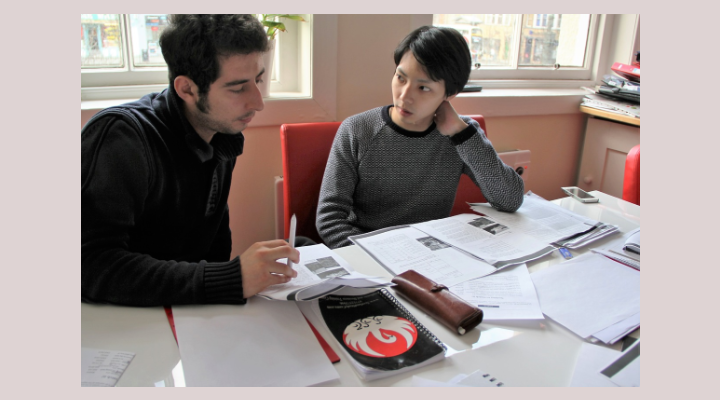Starting an English degree: Advice from a former Exeter student
Starting an English degree: Advice from a former Exeter student

When I first arrived at university, there was a boy at the end of my corridor who claimed to have read the collected works of Proust.
His parents had helped him haul a dark mahogany bookcase into his cramped student room, where he invited my friend and I to peruse his collection.
During my first week of university, aged 18 and with a five-hour train journey separating me from home, the sight of that imposing bookcase filled me with anxiety.
Of course, I now realise that the bookcase was there to impress, the selection of books as carefully curated as another neighbour’s collection of photographs from their gap year travels in Peru.
The shelves were crammed with dusty tomes and well-thumbed poetry collections. I recognised many of the names – Wordsworth, Tolstoy, Steinbeck, HG Wells, James Joyce – but what struck me most wasn’t their presence, but the absence of other authors.
Where was Terry Pratchett? Where was Philip Pullman? Where were the Harry Potters, with their yellowing pages and the familiar cover art, so evocative of my generation’s childhood?
As the boy removed his hefty copy of Ulysses, it occurred to me that every title on his bookshelf, at some point or another, would have appeared on a prescribed checklist of ‘worthy reads’.
Two years later, as I began planning for my dissertation, I was reminded of the boy with his mahogany bookcase. I was trying to pick a dissertation topic, and my tutor had offered me some advice.
‘Pick a book and a topic,” she told me, “that you will love so much that you’ll be willing to trudge through snow to get to the library on a dark February morning.”
It is advice that any student, whether starting or finishing a degree in English Literature, should have at the back of their minds.
There’s an assumption that any student signing up for three years of reading literature – and this may seem obvious – must enjoy reading literature.
But so many friends on my course lost their love for reading at some point or another. When we finished our undergraduate degrees, some claimed that they hadn’t read for pleasure in three years.
English students often fall into the trap of assuming that books they might read for fun are somehow not worthy of study.
Many English Literature degrees now begin with a crash course in the English canon – my own course began with a dash through literary history, from The Odyssey to Frankenstein.
I loved it, but some of my friends found that by the end of the year they’d lost sight of why they’d signed up for English in the first place.
The thing to remember is that the more you learn about the ‘worthy’ works, the more you insight you’ll have into the well-worn books you keep by your bedside table.
My own dissertation compared John Milton’s canonical work Paradise Lost to Philip Pullman’s His Dark Materials trilogy, which have remained my favourite books since I first read them aged 13.
source:http://www.telegraph.co.uk/education/0/starting-english-degree-advice-former-exeter-student/



